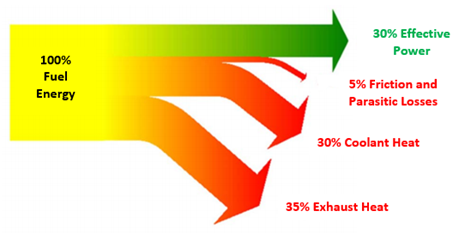How Energy Efficient is a Car Engine?
The energy efficiency of a car engine is measured by its thermal efficiency, which is the ratio of the work output of the engine to the energy input of the fuel. The thermal efficiency of a car engine is typically between 20% and 30%, meaning that only 20% to 30% of the energy in the fuel is converted into useful work.
Factors Affecting Engine Efficiency
There are a number of factors that affect the energy efficiency of a car engine, including:
- Engine size: Smaller engines are generally more efficient than larger engines.
- Fuel type: Gasoline engines are typically less efficient than diesel engines.
- Engine speed: Engines are most efficient when operating at their optimal speed, which is typically around 2,000 to 2,500 rpm.
- Load: Engines are less efficient when under heavy load, such as when climbing a hill.
Ways to Improve Engine Efficiency
There are a number of ways to improve the energy efficiency of a car engine, including:
- Drive at the optimal speed.
- Avoid unnecessary acceleration and deceleration.
- Maintain the engine in good condition.
- Use the correct fuel for your engine.
- Consider buying a more efficient vehicle.
Conclusion
The energy efficiency of a car engine is an important factor to consider when choosing a vehicle. By understanding the factors that affect engine efficiency and by following the tips above, you can improve the efficiency of your engine and save money on fuel costs.





